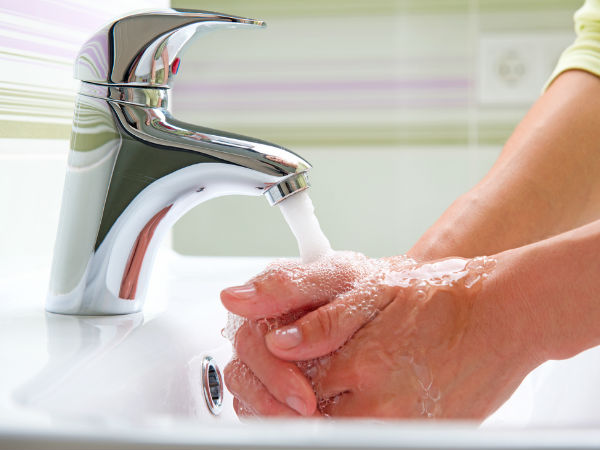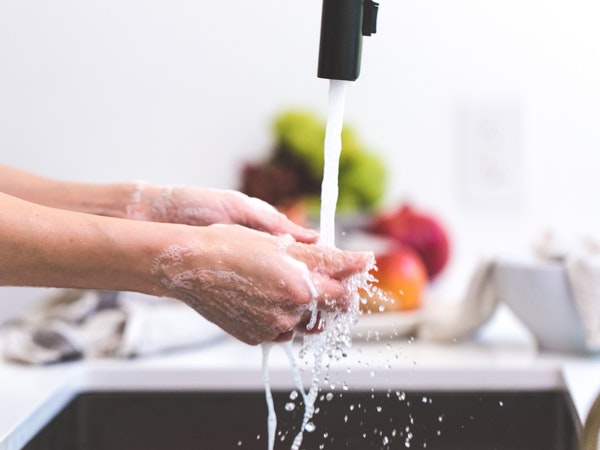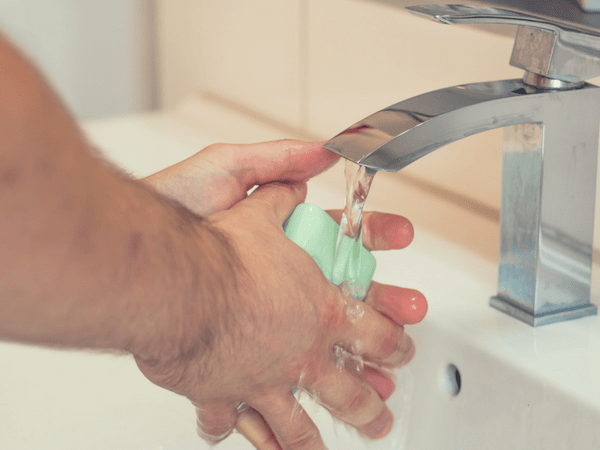Just In
- 4 hrs ago

- 6 hrs ago

- 6 hrs ago

- 6 hrs ago

Don't Miss
- Technology
 HMD Branded First Set of Android Smartphones Are Here!
HMD Branded First Set of Android Smartphones Are Here! - Education
 MP Board Result 2024: Toppers List of Class 10th and 12th is here
MP Board Result 2024: Toppers List of Class 10th and 12th is here - Movies
 Mankatha Re-Release Woes: Ajith-Venkat Prabhu's Action Thriller Faces Issues; To Hit Screens On THIS Date
Mankatha Re-Release Woes: Ajith-Venkat Prabhu's Action Thriller Faces Issues; To Hit Screens On THIS Date - Sports
 Alcaraz: Stopping world's best Sinner not easy in Madrid
Alcaraz: Stopping world's best Sinner not easy in Madrid - News
 Indian MBBS Student, Dasari Chandu, Dies In Kyrgyzstan After Waterfall Mishap
Indian MBBS Student, Dasari Chandu, Dies In Kyrgyzstan After Waterfall Mishap - Finance
 Vodafone Idea FPO: Shares To Debut Tomorrow; GMP Hints Premium Listing; Shares Slump 9%
Vodafone Idea FPO: Shares To Debut Tomorrow; GMP Hints Premium Listing; Shares Slump 9% - Automobiles
 2024 Kia Carens Secures 3-Star Adult & 5-Star Child Safety Ratings – Detailed Look
2024 Kia Carens Secures 3-Star Adult & 5-Star Child Safety Ratings – Detailed Look - Travel
 Mumbai Opens BMC Headquarters For Exclusive Heritage Tour
Mumbai Opens BMC Headquarters For Exclusive Heritage Tour
Global Handwashing Day: Why Hand Hygiene Is Important For Food Safety?

October 15 is the Global Handwashing Day and theme for 2018 centres around the association between handwashing and food including food hygiene and nutrition. Handwashing is an important hand hygiene technique that helps in preventing disease and keeps your food safe.
What Is The Importance Of A Proper Hand Washing Technique?
Keeping your hands clean is one of the most important steps to avoid getting sick and spreading germs to others. Not washing your hands properly with soap increases the risk of many diseases and skin conditions. Regular handwashing particularly before and after certain activities is effective in preventing germs like bacteria and viruses.

What Diseases Can Spread By Not Washing Hands?
- Viral gastroenteritis - Caused by noroviruses, this disease spreads when people don't wash their hands well. This disease is characterized by diarrhoea, abdominal cramps, headache, muscle aches or joint aches.
- Airborne illnesses - Airborne illnesses include the common cold, influenza, meningitis, etc. These diseases result in more than one symptoms like headache, swollen glands, sneezing, coughing etc. Since your hands are in constant contact with body fluids during coughing and sneezing, washing your hands thoroughly can prevent the spread of the diseases.
- Nosocomial infections - These infections are caused by a type of staph bacteria. This infection is spread in hospitals and results when staff and patients don't wash their hands properly. The symptoms of this infection are fever, discharge from a wound, burning while urinating, etc.
- Hepatitis A - A viral infection which often spreads through food that has been contaminated by people preparing it.

The Right Handwashing Technique
Handwashing technique includes the 6 steps according to the CDC (Centers for Disease Control and Prevention).
1.
Wet
your
hands
with
clean,
running
water
and
not
cloudy
water.
2.
Apply
enough
soap
and
lather
your
hands
by
rubbing
them
together.
3.
Lather
the
back
of
your
hands,
between
your
fingers
and
under
your
nails.
4.
Scrub
your
hands
for
at
least
20
seconds.
5.
Rinse
both
your
hands
well
under
running
water.
6.
Dry
your
hands
by
using
a
clean
towel
or
an
air
dryer.

Why Handwashing Is Important Before Food Preparation?
In restaurants, the spread of germs from the hands of food workers is the leading cause of food-borne illnesses. In fact, 89 per cent outbreaks of food-borne illnesses are contaminated by food workers. Proper washing of hands can reduce germs on the workers' hands.
The US Food and Drug Administration (FDA) advises that hands should be washed before making food and gloves should be used while preparing food. The FDA also advises that hands should be washed after eating, drinking, using tobacco, preparing raw animal products, handling dirty equipment, etc.
The CDC recommends that restaurant management and food safety programs should work to improve the handwashing rates particularly after handling raw meat as raw meat contains the E.coli bacteria which causes gastrointestinal problems.
How To Prepare Food Safely?

1. Wash your hands
It's essential to always wash your hands with lukewarm water and soap before starting to prepare food, after touching raw food, after going to the toilet, after touching the pets and the dustbin. This will prevent the bacteria from spreading in the kitchen and onto the food.

2. Keep the worktops clean
Before starting to prepare food, keep your worktops, kitchen utensils and chopping boards spick-and-span. If they have been touched by eggs, raw meat and poultry wash and clean them thoroughly. Wash dishcloths more often to avoid any bacteria growing on the material. While you are done with these activities wash your hands thoroughly.

3. Keep raw food separate from ready-to-eat food
Raw foods like fish, meat and poultry contain bacteria that can spread very easily by touching other foods, worktops, knives and chopping boards. And avoid keeping raw foods separate from ready-to-eat food like salad, bread and fruits as they will not be cooked before you eat them. Also, wash your hands after touching raw foods before eating ready-to-eat foods.
Always remember you should wash your hands before eating food, before, during and after preparing food.
Share this article!
-
 healthWhen Is Total Solar Eclipse 2024? Let's Debunk 3 Common Food Myths About Surya Grahan
healthWhen Is Total Solar Eclipse 2024? Let's Debunk 3 Common Food Myths About Surya Grahan -
 insyncCelebrity Chef Ajay Chopra Launches Plaka, From Potlam Biryani To Taco-Bab, Get Ready To Taste Heaven On Plate
insyncCelebrity Chef Ajay Chopra Launches Plaka, From Potlam Biryani To Taco-Bab, Get Ready To Taste Heaven On Plate -
 insyncThese Are The 10 Oldest Food In The World And We Still Love To Eat Them Today
insyncThese Are The 10 Oldest Food In The World And We Still Love To Eat Them Today -
 insyncValentine's Day 2024: 10 Hottest Indian Food Jodis That Are A Must Have If You Are Celebrating Love
insyncValentine's Day 2024: 10 Hottest Indian Food Jodis That Are A Must Have If You Are Celebrating Love -
 insyncRose Day 2024: Easy To Make Rose-Themed Cake To Woo Your Valentine On V-Day
insyncRose Day 2024: Easy To Make Rose-Themed Cake To Woo Your Valentine On V-Day -
 health10 Cancer Fighting Foods That Help That Play Significant Role In Supporting Body's Natural Defences
health10 Cancer Fighting Foods That Help That Play Significant Role In Supporting Body's Natural Defences -
 insyncLove Sushi? 10 Fun And Fishy Facts About That Roll Into This Culinary Delight
insyncLove Sushi? 10 Fun And Fishy Facts About That Roll Into This Culinary Delight -
 insyncThe Surprising History Of Ketchup: Uncovering Its Roots Of Trade, Taste, and Transformation
insyncThe Surprising History Of Ketchup: Uncovering Its Roots Of Trade, Taste, and Transformation -
 pregnancy parentingMaternal Health Awareness Day 2024: 15 Foods That Boost Maternal Health
pregnancy parentingMaternal Health Awareness Day 2024: 15 Foods That Boost Maternal Health -
 healthWhat Happens If You Eat Food That Has A Fly On It? Knowing The Reasons Will Make You Reconsider Outdoor Snack
healthWhat Happens If You Eat Food That Has A Fly On It? Knowing The Reasons Will Make You Reconsider Outdoor Snack -
 healthThese 9 Foods Can Cause More Damage To Your Liver Than Alchohol!
healthThese 9 Foods Can Cause More Damage To Your Liver Than Alchohol! -
 insyncChef Vishnu Manohar To Prepare 7000 Kg Of Prasad For Ayodhya Ram Temple, Know How To Make Ram Halwa
insyncChef Vishnu Manohar To Prepare 7000 Kg Of Prasad For Ayodhya Ram Temple, Know How To Make Ram Halwa


 Click it and Unblock the Notifications
Click it and Unblock the Notifications



